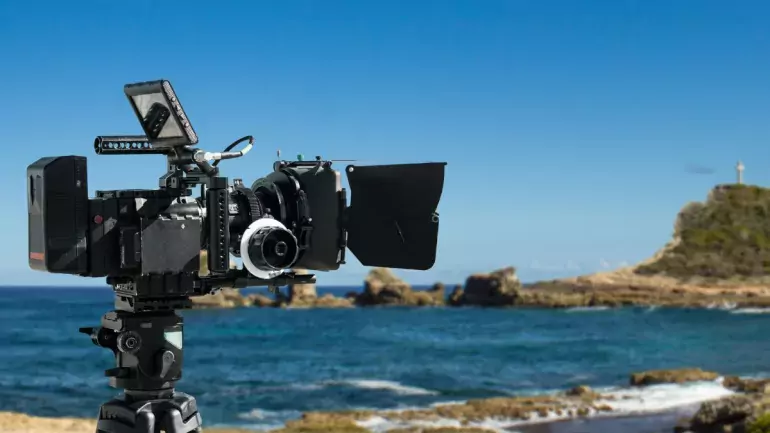ENTERTAINMENT
Shooting a movie in natural sunlight can be transformative and illuminate your cinematic vision.
Illuminate your cinematic vision for extraordinary scenes and elevate your film with the transformative magic of natural sunlight when shooting a movie.
MAX ROSSI, ARTCENTRON
While traditional studio lighting certainly has its upsides, consider using sunlight to your advantage next time you shoot a movie. Natural sunlight is one of the most powerful tools at your disposal as a filmmaker, and it’s free to boot! The sun can add depth, texture, and a sense of realism that artificial lighting often struggles to replicate.
Let’s take a closer look at filmmaking techniques that can help you use sunlight as a dynamic, flexible, and cost-effective lighting source. Master the art of using the sun as a key player in your cinematic storytelling.
Make the Most of the Golden Hour
If you plan to shoot footage in direct sunlight, try scheduling that shoot shortly after sunrise or just before sunset. These times of day are frequently called the golden hours, as they offer a warm, soft hue that can add a magical touch to your scenes.
The low-angle sunlight creates long shadows and highlights textures, giving your footage an enchanting dimension. You can use this time to shoot close-ups, where the flattering light can enhance your subjects’ features.
Use Midday Sun for Dramatic Effect
Contrary to popular belief, the harsh midday sun can be a boon for filmmakers, depending on the intended mood of the scene. The overhead sun produces stark shadows and bright highlights, which in turn creates a dramatic and high-contrast aesthetic. This can be particularly effective in portraying tension or conflict in your narrative.
Pro Tip For Shooting a Movie in Natural Sunlight:
Remember to control your camera’s exposure to avoid overblown highlights and too-dark shadows.
Embrace Overcast Conditions
An overcast day provides naturally diffused light akin to a giant softbox. The cloud cover distributes the sunlight softly and evenly, minimizing those hard shadows and offering a soft, desaturated look to your scenes.
This effect works particularly well for wide shots or scenes that require a somber, moody atmosphere. Just check the weather forecast before you shoot to avoid getting caught in the rain!
Manipulate the Sunlight With Tools
You may not be able to control the sun itself, but you can manipulate its light with the right equipment.
Use reflectors to bounce sunlight onto your subject or areas needing more illumination. Diffusers can soften harsh sunlight, while neutral density filters help control the intensity of the light hitting your camera sensor. These tools allow you to shape the sunlight according to your creative vision.
Understand the Sun’s Position
The sun moves from east to west throughout the day, with its position affecting the direction and quality of light. Backlighting your subject with the sun can create a beautiful rim light effect, while side lighting can emphasize texture and depth.
Sunlight can be one of your greatest allies as a filmmaker. It’s more than just a source of illumination; it is a versatile, dynamic, and powerful tool that can shape your movie’s narrative and overall mood. By using sunlight to your advantage as you shoot your movie, you can craft scenes that resonate with viewers on a profound level.
